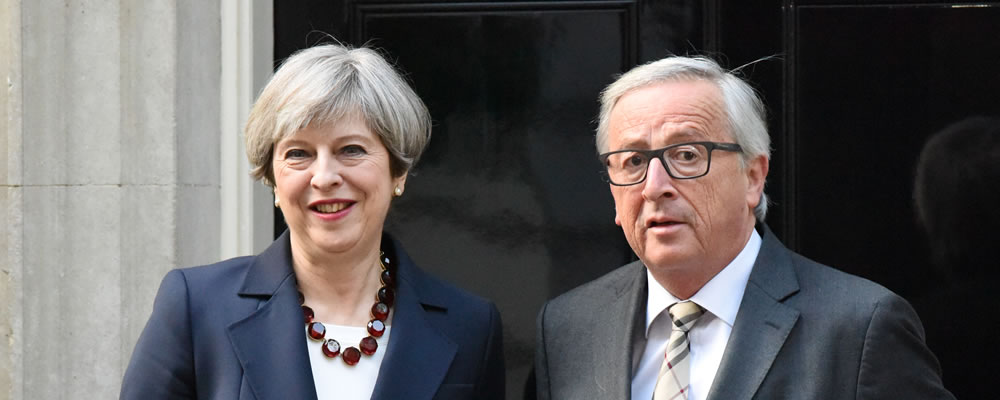Euro to Pound Exchange Rate Benefits from Brexit Uncertainties
Despite this week’s Eurozone economic data painting a mixed picture for the Eurozone economy, the Euro to Pound Sterling (EUR/GBP) exchange rate is on track to have gained this week as Brexit jitters continued to weigh on Sterling.
After opening this week at the level of 0.8843, EUR/GBP fluctuated in the early week before seeing a solid gain on Thursday and touching a weekly high of 0.8916. At the time of writing on Friday morning, EUR/GBP trended close below those highs.
Friday demand for the Euro (EUR) was dampened slightly by the Eurozone’s latest ecostats, which fell short of expectations.
Sterling (GBP), on the other hand, has been unable to recover from its Thursday tumble as concerns persist about the possibility that UK Prime Minister Theresa May’s Brexit deal will be blocked and that this could lead to a ‘no-deal Brexit’.
Euro (EUR) Exchange Rate Strength Fades Ahead of G20 Summit
Demand for the Euro was stronger on Thursday due to numerous factors, but it was largely down to weakness in major Euro rivals like the Pound and the US Dollar (USD).
Sterling was sold on Brexit uncertainties, while the US Dollar tumbled following comments perceived as dovish from Federal Reserve Chairman Jerome Powell.
Powell indicated that the US interest rate was ‘just below’ neutral, and that it would not rise too far above neutral. This dampened Fed interest rate hike bets as well as perceived monetary policy divergence.
As the Euro often sees a negative correlation with the US Dollar, the US Dollar’s weakness on lower Fed bets made the Euro more appealing.
The Euro’s strength was dampened on Friday though, as the safe haven US Dollar firmed slightly ahead of a highly anticipated G20 summit in Argentina.
Friday data also showed that German retail sales unexpectedly contracted month-on-month, and the previous figures were revised even lower. This put additional late-week pressure on the Euro.
Pound (GBP) Exchange Rate Volatility Persists as Brexit Stormclouds Linger
Sterling weakened notably in the second half of the week, as investors became more anxious that Britain was not sufficiently prepared for the Brexit process, or that the government would seriously consider a ‘no-deal Brexit’ if the plan does not pass UK Parliament.
UK Prime Minister Theresa May’s negotiated Brexit plan has been the source of significant domestic contention in recent weeks and analysts doubt that she will win enough votes to pass the plan into UK law.
Market focus will remain on the perceived popularity of the Brexit plan over the coming weeks, as MPs prepare for a key Parliamentary vote due to be held on the 11th of December.
On Thursday, Prime Minister May indicated that if the vote did not pass through UK Parliament, the government would ramp up preparations for a possible ‘no-deal Brexit’.
It followed this week’s report from the Bank of England (BoE) claiming that Britain’s economy could shrink 8% in the event of a disorderly ‘no-deal Brexit’.
Euro to Pound (EUR/GBP) Exchange Rate Could React to G20 Developments and Upcoming PMIs
The Euro to Pound (EUR/GBP) exchange rate may struggle to hold its ground in the coming week if hopes for a soft Brexit rise, or if Eurozone economic data continues to disappoint.
On the other hand though, if EUR/GBP advances much higher it could hit its best levels in a month.
Investors may find reason to buy the Euro depending on the outcome of the G20 summit in Argentina.
US President Donald Trump and China President Xi Jinping are expected to meet at the summit, and analysts predict this could result in major US-China trade developments.
If there are any signs of de-escalation in US-China trade tensions, the safe haven US Dollar (USD) may weaken and this would lead to stronger Euro demand.
EUR/GBP investors will be keeping an eye on November’s Eurozone and UK PMI results from Markit, which will give markets a better idea of how economies performed this month.
Of course, any notable developments in domestic support for UK Prime Minister Theresa May’s Brexit plan could also influence the Euro to Pound (EUR/GBP) exchange rate next week.



